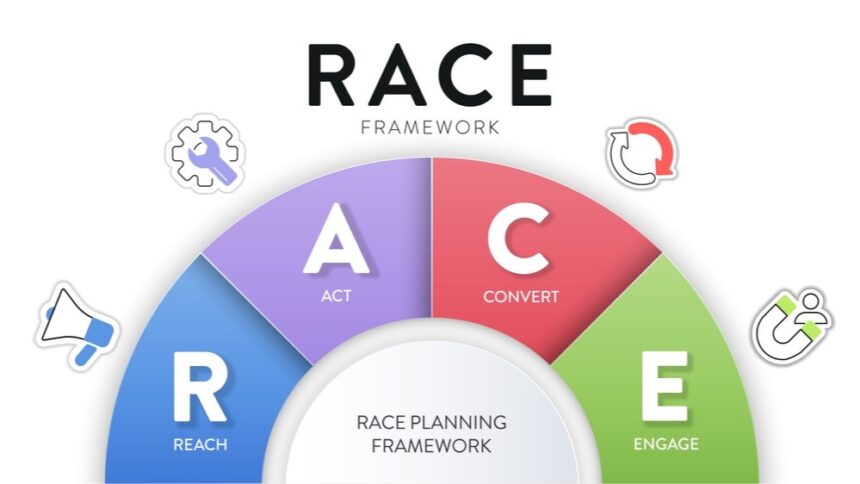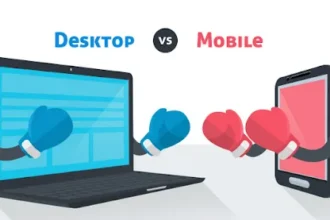Using the RACE Framework for Effective Funnel Alignment
In the fast-paced world of digital marketing, aligning your strategies with the customer journey is critical for success. The RACE framework—Reach, Act, Convert, Engage—provides a structured approach to guide potential customers through the marketing funnel, from awareness to loyalty. For Nigerian entrepreneurs and businesses aiming to maximize their online presence, RACE offers a clear roadmap to attract, nurture, and retain customers. This article explores how to apply the RACE framework to align your marketing funnel effectively, with practical tips tailored for the Nigerian market.
What is the RACE Framework?
Developed by Smart Insights, RACE is a digital marketing framework that breaks the customer journey into four stages:
- Reach: Create awareness and attract potential customers.
- Act: Encourage interaction and engagement with your brand.
- Convert: Turn prospects into paying customers.
- Engage: Build long-term relationships to foster loyalty and repeat business.
By aligning these stages with your marketing funnel (awareness, consideration, conversion, retention), RACE ensures a seamless customer experience that drives results.
1. Reach: Building Awareness
The Reach stage focuses on increasing visibility to attract your target audience. In Nigeria, where digital platforms like Instagram, WhatsApp, and Twitter are widely used, this stage is about standing out in a crowded market.
Strategies:
- Social Media Advertising: Use targeted ads on Instagram and Twitter to reach Nigeria’s tech-savvy youth. For example, a Lagos-based fashion brand could run Instagram Reels ads showcasing vibrant ankara designs.
- SEO and Content Marketing: Optimize your website or blog for local search terms (e.g., “best jollof rice in Lagos”) to rank higher on Google, capturing organic traffic.
- Influencer Partnerships: Collaborate with Nigerian influencers in your niche, like food bloggers or tech reviewers, to amplify your reach.
- Local Events: Promote your brand through virtual or hybrid events, such as webinars on Eventbrite, to connect with local audiences.
Metrics to Track:
- Impressions and reach on social media.
- Website traffic and search engine rankings.
- Click-through rates (CTR) on ads.
Example: A Nigerian skincare brand could partner with a beauty influencer like Dimma Umeh to promote natural products, driving traffic to their website.
2. Act: Encouraging Interaction
The Act stage is about engaging prospects to interact with your brand, moving them from awareness to consideration. This is where you spark interest and build trust.
Strategies:
- Engaging Content: Share valuable content like blog posts, videos, or infographics. For instance, a tech startup could create a YouTube tutorial on using their app.
- Lead Magnets: Offer free resources like e-books, templates, or webinars to capture contact details. A fitness coach might provide a free “7-Day Workout Plan” in exchange for email sign-ups.
- Social Media Engagement: Respond to comments and DMs promptly on platforms like WhatsApp or Instagram, which are key for Nigerian audiences.
- Interactive Tools: Use quizzes or calculators to engage users. A real estate company could offer a “Lagos Property Budget Calculator” to attract homebuyers.
Metrics to Track:
- Engagement rates (likes, comments, shares).
- Email sign-up rates or form submissions.
- Time spent on website or video views.
Example: A Nigerian e-commerce store could post a poll on Twitter asking, “Which Ankara style is your vibe?” to encourage interaction and learn customer preferences.
3. Convert: Driving Sales
The Convert stage focuses on turning engaged prospects into paying customers. In Nigeria’s competitive market, trust and convenience are key to closing sales.
Strategies:
- Optimized Landing Pages: Create clear, mobile-friendly landing pages with strong calls-to-action (CTAs). For example, “Shop Now for Free Delivery in Lagos!”
- Email Marketing: Send personalized email campaigns with promotions or abandoned cart reminders. Tools like Mailchimp are cost-effective for startups.
- Payment Flexibility: Offer multiple payment options like Paystack, Flutterwave, or bank transfers to cater to Nigerian consumers.
- Social Proof: Showcase customer reviews, testimonials, or user-generated content to build trust. A food delivery service could highlight “Rated 5 Stars by 1,000+ Lagos Customers.”
Metrics to Track:
- Conversion rate (percentage of visitors who purchase).
- Average order value.
- Cart abandonment rate.
Example: A Nigerian online bookstore could send a 10% discount code via WhatsApp to users who signed up for their newsletter, driving book sales.
4. Engage: Fostering Loyalty
The Engage stage is about retaining customers and turning them into brand advocates. In Nigeria, where word-of-mouth is powerful, building loyalty can lead to organic growth.
Strategies:
- Customer Support: Offer responsive support via WhatsApp or live chat, which Nigerians prefer for quick communication.
- Loyalty Programs: Create rewards like discounts or exclusive offers for repeat customers. A coffee shop could offer a “Buy 5, Get 1 Free” deal.
- Community Building: Foster a sense of belonging through social media groups or forums. A fitness brand might create a WhatsApp group for workout challenges.
- Post-Purchase Follow-Up: Send thank-you emails or request feedback to show appreciation and improve services.
Metrics to Track:
- Customer retention rate.
- Net Promoter Score (NPS) for likelihood to recommend.
- Repeat purchase rate.
Example: A Nigerian haircare brand could invite loyal customers to a virtual “Haircare Tips” webinar, strengthening community ties and encouraging repeat purchases.
Aligning RACE with the Marketing Funnel
The RACE framework aligns seamlessly with the traditional marketing funnel:
- Awareness (Reach): Introduce your brand to new audiences.
- Consideration (Act): Build trust and interest through engagement.
- Conversion (Convert): Drive sales with targeted offers and trust signals.
- Retention (Engage): Nurture relationships to ensure long-term loyalty.
By mapping your strategies to each stage, you create a cohesive funnel that guides customers from discovery to advocacy.
Tips for Nigerian Entrepreneurs
- Leverage Local Platforms: Use WhatsApp Business for direct customer engagement and Paystack for seamless payments.
- Focus on Mobile: With over 80% of Nigerians accessing the internet via mobile, ensure all content and funnels are mobile-optimized.
- Tap into Culture: Incorporate Nigerian trends, slang, or events (e.g., #EndSARS, Big Brother Naija) to make campaigns relatable.
- Test and Iterate: Use tools like Google Analytics or Meta Business Suite to track performance and refine strategies.
Challenges and Solutions
- Challenge: Limited digital literacy among some audiences.
- Solution: Use simple, visual content and platforms like WhatsApp for accessibility.
- Challenge: High ad costs on competitive platforms.
- Solution: Focus on organic growth through SEO and influencer collaborations.
- Challenge: Trust issues with online payments.
- Solution: Offer cash-on-delivery or trusted payment gateways like Flutterwave.
Final Thoughts
The RACE framework is a powerful tool for Nigerian entrepreneurs to align their marketing funnel and drive measurable results. By strategically reaching audiences, encouraging interaction, converting leads, and fostering loyalty, you can build a thriving business in Nigeria’s dynamic digital landscape. For expert guidance on implementing RACE or optimizing your digital strategy, reach out to Bintus Art and Everything at www.bintusartandeverything.com. Their tailored branding and marketing services can help you craft a funnel that resonates with Nigerian audiences and beyond. Start applying RACE today, and watch your business grow from reach to retention!





